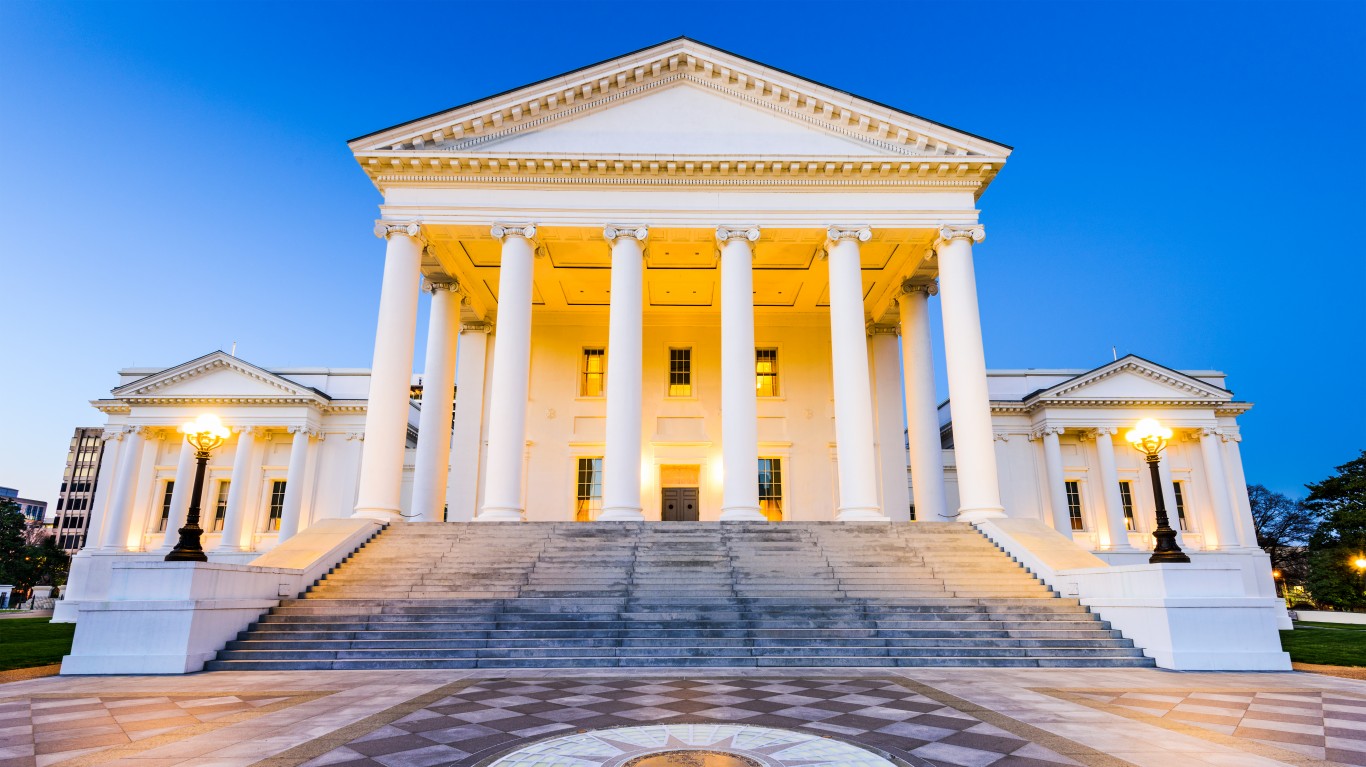
Gov. Glenn Youngkin signed a bipartisan state budget that, among other things, includes $1 billion in tax relief. The $1 billion in tax relief package, in turn, includes tax rebates from Virginia, raises the standard deduction, as well as reinstates the popular back-to-school sales tax holiday.
One-Time Tax Rebates From Virginia Ended The Stalemate
After intense negotiations, Virginia’s General Assembly overwhelmingly adopted the compromise spending plan.
“This budget is the result of what we can accomplish when we put politics down and choose conservative commonsense solutions and make critical investments to ensure Virginia is the best state to live, work, and raise a family,” Gov. Youngkin said in a press release.
The budget’s $1 billion in tax relief is mostly through tax rebates from Virginia of $200 to individuals ($400 for joint filers). Further, the budget increases the standard deduction to $8,500 for single filers and $17,000 for married filers.
Also, the governor reinstated the back-to-school sales tax holiday. The tax holiday, which usually takes place in August, will be held in late October this year. Other tax relief measures include eliminating the age restriction on military retirement income tax relief.
As well, the $1 billion tax relief package raises the business interest deduction from 30% to 50%. This would help small businesses and employers save over $10 million annually in tax year 2024.
Policy changes were the main sticking point for a six-month stalemate, with Gov. Youngkin and the GOP-controlled House of Delegates favoring $1 billion in additional permanent cuts, including reducing the corporate tax rate.
Democrats, who control the state Senate, believed there is no need for more reductions now with $4 billion in tax relief already negotiated last year. Eventually, the two sides agreed, with the one-time tax rebate acting as a compromise.
What Else Is Included In The Budget?
Along with the one-time tax rebates, the budget also raises K-12 education spending and sets money aside for behavioral health initiatives, including for new crisis receiving centers and crisis stabilization units.
The budget also sets aside funds for a 2% extra raise for state workers and the state’s share of a 2% raise for state-supported local employees. There is also a $250,000 allocation to create a Department of Corrections ombudsman.
Other provisions of the budget include $12.3 million for the state Employment Commission to support call centers and help with the unemployment appeals backlog; $62.5 million extra funding for college financial aid; and $200 million fresh aid for economic development-related site acquisitions.
Even though both Democrats and Republicans favored major behavioral health spending, the budget includes just $18 million for raising the salary for staff at community services boards (CSBs) and the local agencies offering community-based behavioral health and developmental disability services.
Initial proposals from the House and Senate would have set aside $37 million or $50 million, respectively, for pay raises. A report from Virginia’s legislative watchdog agency in December 2022 concluded that “uncompetitive salaries” are a major reason of staffing problems at CSBs.
This article originally appeared on ValueWalk
It’s Your Money, Your Future—Own It (sponsor)
Are you ahead, or behind on retirement? For families with more than $500,000 saved for retirement, finding a financial advisor who puts your interest first can be the difference, and today it’s easier than ever. SmartAsset’s free tool matches you with up to three fiduciary financial advisors who serve your area in minutes. Each advisor has been carefully vetted and must act in your best interests. Start your search now.
If you’ve saved and built a substantial nest egg for you and your family, don’t delay; get started right here and help your retirement dreams become a retirement reality.
Thank you for reading! Have some feedback for us?
Contact the 24/7 Wall St. editorial team.




